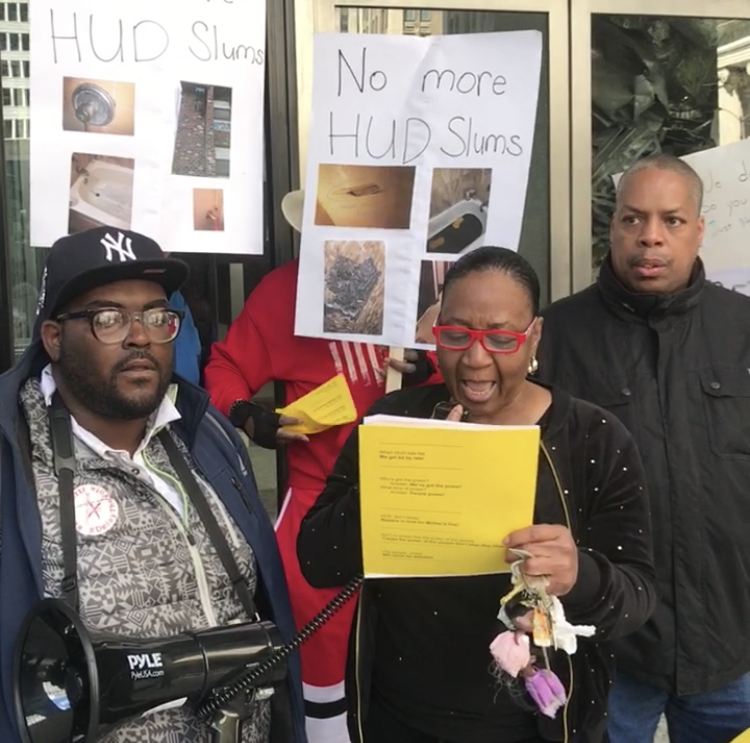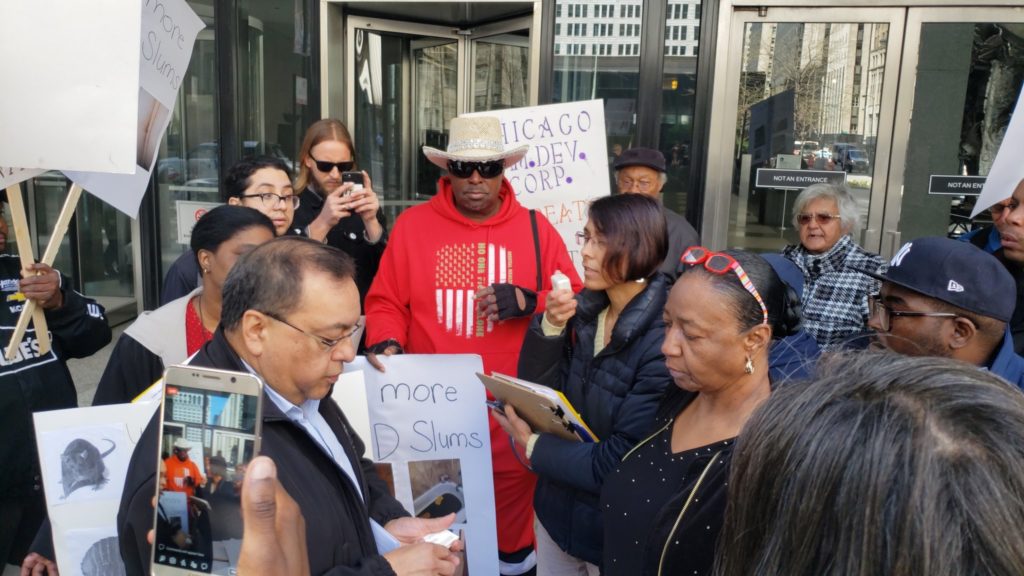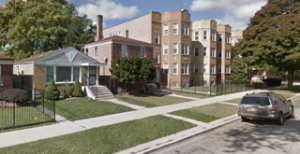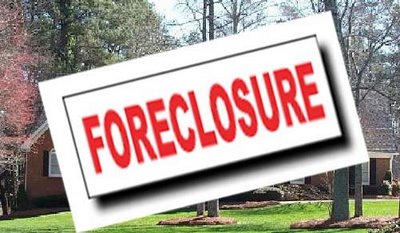May 10th 2019

Barbara Jean Wright Courts, speaks about the living conditions at the complex.
Chicago, IL. – Twenty-five tenants and their supporters picketed outside the Housing and Urban Development (HUD) offices at 77 W Jackson in downtown Chicago today. The tenants were sick and tired of inaction on the part of their landlords and the lack of oversight by HUD. One tenant asked, “How can I celebrate Mother’s Day in my home when my kitchen cabinets are falling apart?”
It was almost a year ago today that HUD representatives met with tenants at a Town Hall meeting of subsidized renters organized by the Metropolitan Tenants Organization (MTO). At the Town Hall, HUD representatives promised action. They assured tenants they would come out to the buildings and hold the landlords accountable to very basic housing standards.
For the tenants living in Barbara Jean Wright Courts, Germano Millgate and Indian Trails Apartments, HUD has not made good on its promise. Tenants are living with rats, bed bugs, holes in the walls, elevators that don’t work, plumbing problems and more. One parent, who wished to remain anonymous out of fear of retaliation, is worried that DCFS is going to take her children away because the conditions are so bad.
Tenants were preparing to deliver a letter to HUD officials demanding a meeting. As the tenants chanted, “HUD don’t delay, Repairs in time for Mother’s Day!” outside of HUD’s downtown office, Joseph Galvan, HUD’s Regional Administrator for Region V, came out to talk. Jesse Johnson of Barbara Jean Wright Court asked Mr. Galvan to meet with the tenants and to inspect the complexes. Mr. Galvan agreed to inspect the above three apartment complexes and to meet with the tenants in his office on May 31st. The tenants left feeling fired up and ready to keep the pressure on HUD and their landlords to provide decent and safe housing.





 In January of 2011, tenants from a senior building at 353 E. 53rd Street called MTO complaining of repair problems in their building. The hotline counselor suggested
In January of 2011, tenants from a senior building at 353 E. 53rd Street called MTO complaining of repair problems in their building. The hotline counselor suggested  In August of 2008 tenants from a building in Englewood called MTO’s Tenants Rights Hotline complaining about egregious conditions including broken security locks, pest infestations, and lack of essential services, like heat. MTO immediately sent organizers out to assess the situation. The Ada-Throop buildings are subsidized by the US Department of Housing and Urban Development (HUD). In addition to confirming the deplorable conditions tenants reported, MTO organizers learned that the building was in foreclosure and that the building’s subsidy was at risk.
In August of 2008 tenants from a building in Englewood called MTO’s Tenants Rights Hotline complaining about egregious conditions including broken security locks, pest infestations, and lack of essential services, like heat. MTO immediately sent organizers out to assess the situation. The Ada-Throop buildings are subsidized by the US Department of Housing and Urban Development (HUD). In addition to confirming the deplorable conditions tenants reported, MTO organizers learned that the building was in foreclosure and that the building’s subsidy was at risk.